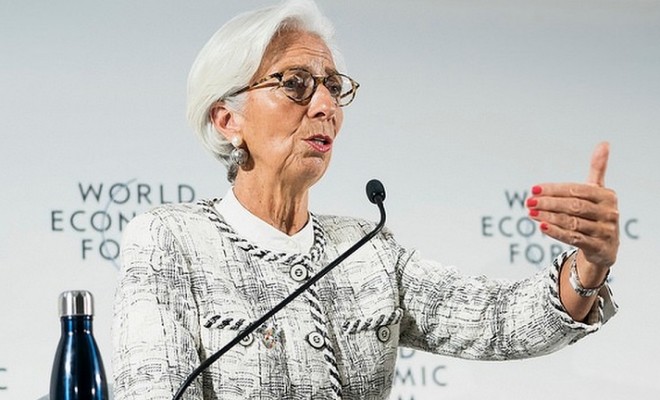
Europe readies for liftoff
If the Fed’s go-to word is “expeditiously,” it’s “gradually” for the European Central Bank, which tomorrow is expected to announce its first interest rate increase in over a decade.
- It’s one of the last major central banks to pull the trigger, as policymakers everywhere grapple with soaring inflation.
Why it matters: Euro zone inflation is nearly as high as in the U.S., but the underlying drivers are different, as the bloc has been slammed by the economic fallout from Russia’s invasion of Ukraine.
- It’s complicating the ECB’s battle with sharply rising costs while the euro area braces for a recession.
This week alone is riddled with developments that hint at some of the central bank’s challenges.
- Italian Prime Minister Mario Draghi said this morning he would stay in power if he wins key confidence votes. His announced intent to resign last week raised fears that the euro zone’s third-largest economy would plunge into political instability at a delicate time.
- The potential departure of the former ECB president and much-respected figure could complicate the central bank’s internal politics over how to deal with widening gaps between what Italy and other countries must pay to borrow money.
Meanwhile, today Russia signaled it could keep natural gas flowing to Europe following a critical pipeline’s maintenance shutdown, but volumes will be curtailed.
- Euro zone officials are on edge about gas supply. They are looking for ways to curb consumption while they hunt for alternatives. But interest rate policy can’t really do anything to help on that front.
The intrigue: Those risks are among the reasons why market-watchers are already mulling when the ECB will pause raising rates — even before they make their first move.
- “You have to sound very tough in the face of this eye-watering inflation, but at some point, the focus will shift,” BlackRock Investment Institute’s Wei Li, who expects rates to peak at 0.75%, tells Axios.
- “We believe European policymakers will blink because any recession could be traumatic, especially amplified by an energy crisis.”
What to watch: Until this week, the ECB looked likely to hike interest rates a quarter-point. Then, multiple news outlets reported officials were mulling a larger, half-percentage point move.
- A smaller move would keep key interest rates negative, while a bigger one would take them exactly to zero.
- The deposit rate has been negativesince 2014, forcing banks to pay up to park money at the central bank — a mechanism meant to encourage them to lend.
What they’re saying: “The economy can withstand the removal of these extraordinary measures, but the window for doing so is perhaps narrowing with the energy crisis looking like it’s becoming more acute by the day,” possibly pushing policymakers to act more aggressively now, PGIM Fixed Income’s chief European economist Katharine Neiss tells Axios.
Πηγή: axios.com




